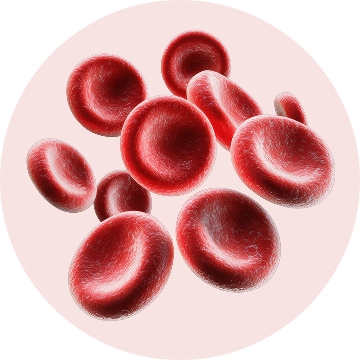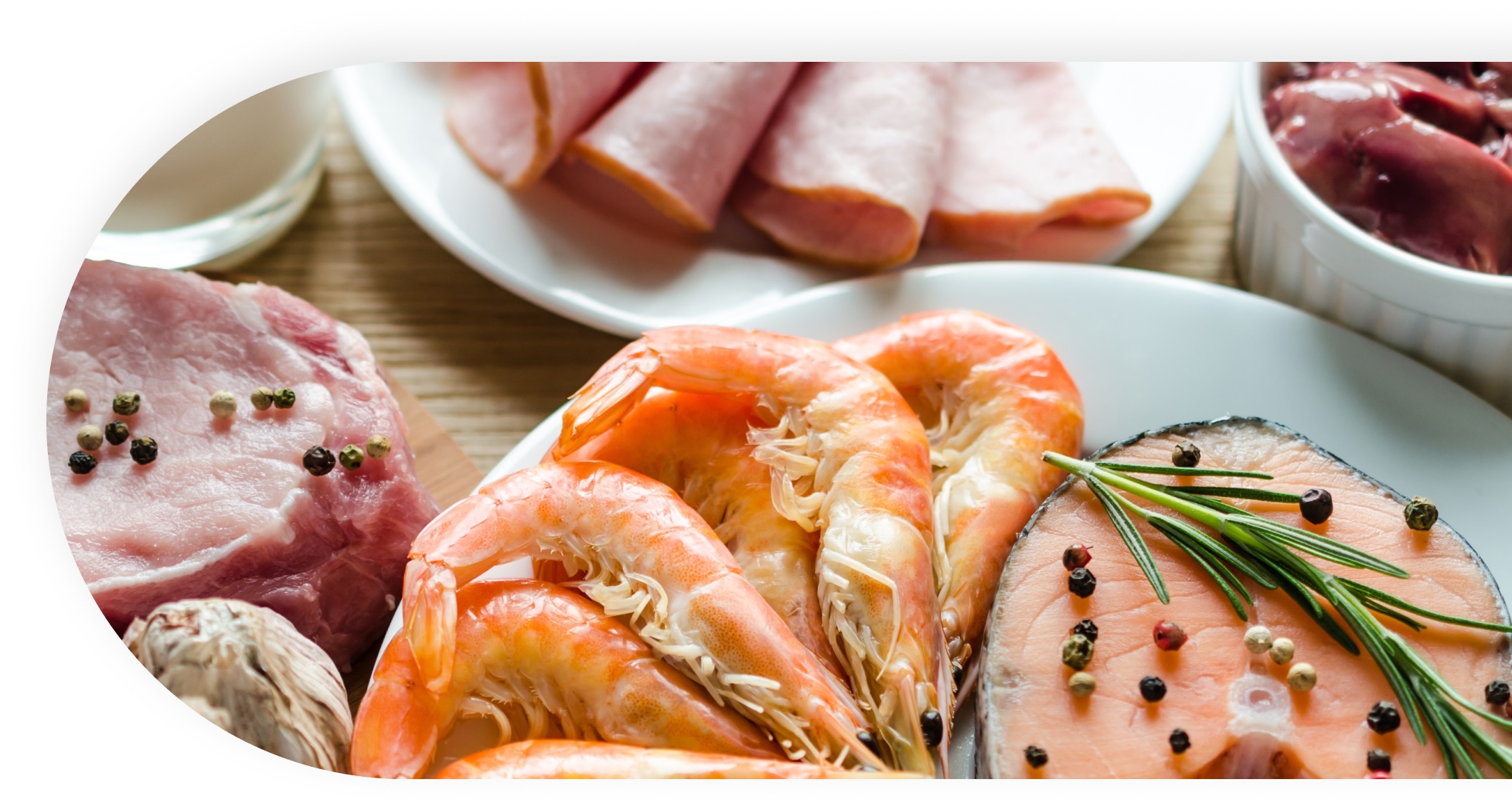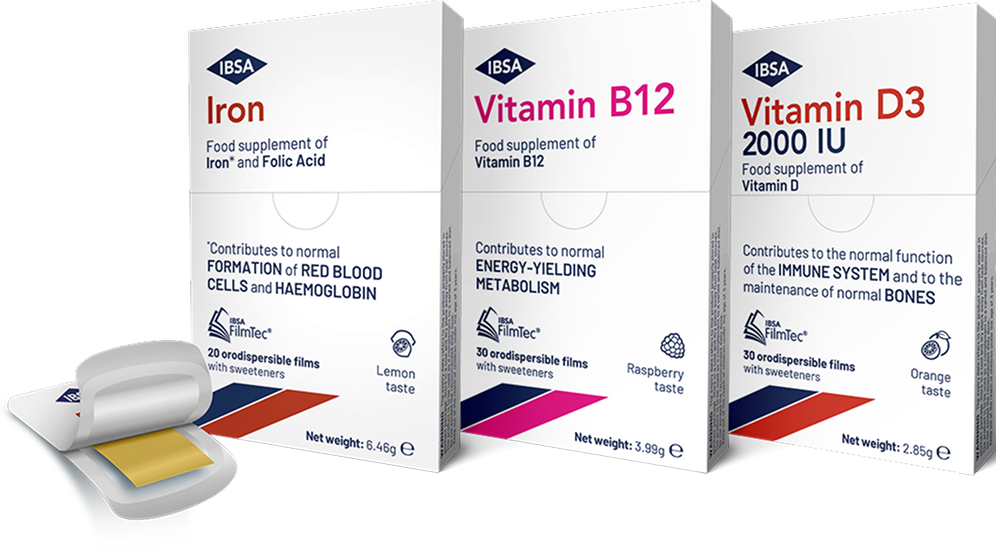Iron and
Folic Acid
Nutrient
Overview
Iron: an essential nutrient
Iron contributes to normal oxygen transport in the body and contributes to normal formation of red blood cells and haemoglobin. Iron contributes to the reduction of tiredness and fatigue and contributes to the normal function of the immune system.

Iron in the blood
Red blood cells (erythrocytes) are the functional component of blood responsible for transporting gases (O₂, CO₂) and nutrients throughout the human body, as well as maintaining systemic acid-base balance.
Iron is an essential nutrient for the well-being of our body, as it is a mineral necessary for the production of hemoglobin-a protein found in red blood cells that transports oxygen throughout the body via the bloodstream. Each human red blood cell contains approximately 300 million hemoglobin molecules.
What are the benefits of iron?
What is the role of iron in our body?
Which foods
are richest in iron?
Lean meat
Liver
Fish
Shellfish
Beans and lentils
Nuts
Vegetables
(spinach, tofu, soy)
Fortified
cereal-based products

When might someone need more iron?
Intense physical activity
Endurance athletes, especially those engaged in aerobic activities, often exhibit lower hemoglobin levels, even in the absence of underlying conditions
Childbearing age
Women with heavy menstrual bleeding could lead to low iron levels
In old age
Low iron levels is a common condition in the elderly, often linked to nutritional deficiencies or chronic diseases. This may be compounded by inadequate intake of folic acid

When to supplement iron?
The iron in the body comes from the diet, which, if varied and balanced, can be sufficient to offset losses and maintain adequate levels of this mineral.
However, certain factors can lead to, low iron levels particularly:
- A diet low in iron
- Certain conditions that cause reduced absorption of dietary iron
- Pregnancy and breastfeeding, where the body’s need for iron increases due to higher demands
- Loss of blood due to heavy menstrual periods
In cases of low iron levels in the blood or increased need, taking an iron food supplement can be helpful.
Folic acid nutrient overview
What is folic acid and what is it for?
Folate is the natural form of vitamin B9, water-soluble and naturally found in many foods.
Folic acid requirements in the blood
The daily requirement of folic acid varies depending on age, gender, and other physiological conditions such as pregnancy or breastfeeding.
How does folic acid work?
After ingestion, folic acid is converted in the liver and other tissues into its active metabolite, tetrahydrofolate (THF), through a process that involves the enzyme dihydrofolate reductase.


Food supplements should not be used as a substitute for a varied diet and a healthy lifestyle.





